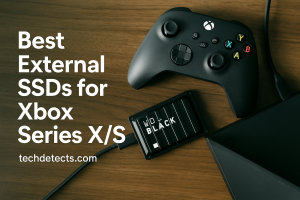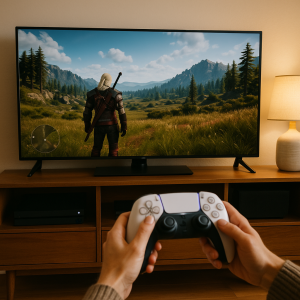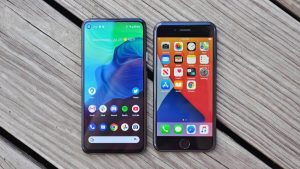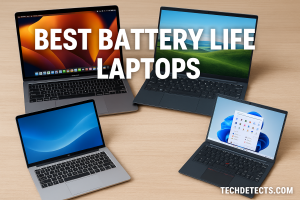Best Chinese Tablets to Buy in 2026 (Android, HyperOS, MagicOS & HarmonyOS)
Chinese tablet makers have truly stepped up in 2026 — competing head‑to‑head with the biggest global brands. From Xiaomi’s HyperOS ecosystem to HONOR’s MagicOS, and HUAWEI’s premium HarmonyOS tablets, these devices deliver flagship‑level displays, strong performance, and surprisingly polished software experiences. Whether you’re looking for a creative workstation, an OLED media tablet, or a powerful Android alternative for productivity, China’s top tablets now offer incredible variety and value.

How we picked
We shortlisted current, buyable models from leading Chinese brands, focusing on display quality, performance/thermals, battery life, pen/keyboard ecosystem, and software experience. Our list includes Android-based and proprietary systems like HyperOS, MagicOS, and HarmonyOS.
What matters most
- Screen: 11–13″ with high resolution and at least 90–120Hz for smooth UI and pen work.
- SoC: Snapdragon 8-series / Dimensity 8000+ for pro use; mid-chips for everyday.
- Battery & charging: 8,000–12,000mAh with fast USB-C PD.
- Accessories: 1st-party pen + keyboard support.
- Software: Clean Android, HyperOS, MagicOS, or HarmonyOS. Check Google Play access based on region.
⚠️ Important: HUAWEI’s HarmonyOS tablets lack official Google Play services. Some regions use workarounds (e.g., GBox) with partial compatibility. Verify your critical apps first.
OS Ecosystem Overview (2026)
| Brand | OS / Ecosystem | Based On | Google Play Support | Highlights |
|---|---|---|---|---|
| Xiaomi | HyperOS | Android-based | ✅ Yes | Unified with Xiaomi phones and laptops; fast, clean. |
| HONOR | MagicOS | Android-based | ✅ Yes | Smooth multitasking; Magic Space desktop mode. |
| HUAWEI | HarmonyOS 4.x | AOSP + HMS Core | ❌ No | Elegant UI; AppGallery only; workarounds vary by region. |
| OPPO | ColorOS for Pad | Android-based | ✅ Yes | Tablet-optimized UI and pen features. |
| Lenovo (Xiaoxin) | ZUI (China) / Android (Global) | Android | ✅ Global only | OLED screens, good accessories, midrange pricing. |
| Teclast / Alldocube / Chuwi | Stock Android | Android | ✅ Yes | Clean interface; budget-friendly with slower update cadence. |
Quick Picks (TL;DR)
- Best overall: Xiaomi Pad 7 Pro — 3.2K 144Hz display, strong Snapdragon 8s Gen 3, polished HyperOS.
- Best big‑screen creator slate: HONOR MagicPad 3 — 13.3″ 165Hz panel, Snapdragon 8 Gen 3, large battery.
- Best OLED pro tablet: HUAWEI MatePad Pro 13.2 — ultra‑thin, 13.2″ 2.8K OLED 144Hz, premium pen experience.
- Best balanced 11–12″ Android: OPPO Pad 3 — 11.6″ high‑res, large battery, smooth ColorOS.
- Best value work‑and‑study: Lenovo Xiaoxin Pad Pro (2024/2025) — OLED (China) / close global equivalents; great keyboard/pen.
- Best under $250: Teclast T50 Pro — solid 11″ 120Hz value.
- Best ultra‑budget: Alldocube iPlay 50 Pro Max / Chuwi HiPad X — everyday media and notes for less.
Xiaomi Pad 7 Pro — Best Overall
Why it’s great: A sharp 3.2K 144Hz panel, Snapdragon 8s Gen 3 power, and tidy HyperOS make this the easiest all‑round pick. Workstation mode helps multitask; strong speakers and pen support round it out.
Best for: Creators, students, and power users wanting a fast 11″ class slate.
Highlights: 11.2″ 3.2K 144Hz · Snapdragon 8s Gen 3 · HyperOS · pen/keyboard support · fast charging.
HONOR MagicPad 3 — Best Big‑Screen Creator Slate
Why it’s great: A 13.3″ 165Hz high‑refresh display with Snapdragon 8 Gen 3 and spatial audio. Great canvas for drawing, sheet music, and two‑app splits.
Best for: Artists, writers, and editors who want a huge, smooth canvas.
Highlights: 13.3″ 165Hz · Snapdragon 8 Gen 3 · big battery · good keyboard/pen options.
HUAWEI MatePad Pro 13.2 — Best OLED Pro Tablet
Why it’s great: An ultra-thin 13.2″ 2.8K OLED 144Hz screen with pen latency that feels pen-on-paper. Premium build, strong speakers, and desktop-style multitasking on HarmonyOS.
Best for: Designers and media pros who prioritize OLED contrast and build quality.
Highlights: 13.2″ OLED 144Hz · very thin/light · large battery · M-Pencil 3 support.
Note: No official Google Play in many regions; some users rely on GBox/AppGallery. Check banking/DRM apps and work VPN needs before buying.
OPPO Pad 3 — Best Balanced 11–12″ Android
Why it’s great: A crisp 11.6″ high‑res panel, big 9520mAh battery, and smooth ColorOS tablet features. Clean pen experience and solid speakers for movies and meetings.
Best for: Users who want a modern Android tablet that’s easy to live with daily.
Highlights: 11.6″ high‑res · large battery · 67W charging · pen/keyboard support.
Lenovo Xiaoxin Pad Pro (2024/2025) — Best Value Work‑and‑Study
Why it’s great: The China‑market OLED models deliver great screens and pen feel at keen prices. Global Lenovo variants with similar hardware exist; accessories are widely available.
Best for: Students and multi‑taskers who want OLED and a light keyboard case without overspending.
Highlights: 11.2–12.7″ OLED options · strong battery life · pen/keyboard ecosystem.
Note: Naming differs by region; verify model and LTE/pen support.
Teclast T50 Pro — Best Under $250
Why it’s great: A value-packed 11″ 120Hz display, metal build, and clean Android for casual work and streaming.
Best for: Budget buyers who still want a fast-feeling UI and decent speakers.
Highlights: 11″ 120Hz · large battery · microSD on many SKUs · lightweight.
Note: Software updates can be infrequent on ultra-budget brands; check current firmware support.
Alldocube iPlay 50 Pro Max / Chuwi HiPad X — Best Ultra-Budget
Why it’s great: Everyday browsing, reading, and media at a very low price. Expect modest cameras and charging, but usable screens and battery life.
Best for: Kids, secondary screens, or simple note-taking.
Highlights: 10–11″ FHD displays · decent battery · microSD on many SKUs.
Note: Often ship with Widevine L3 (no HD streaming in some apps) and limited update cadence.
Comparison Table (at a glance)
| Model | OS | Screen | Refresh | SoC | Battery | Pen/KB | Why it stands out |
| Xiaomi Pad 7 Pro | HyperOS | 11.2″ 3.2K | 144Hz | Snapdragon 8s Gen 3 | ~8600mAh | Yes | Fast, sharp, polished HyperOS |
| HONOR MagicPad 3 | MagicOS | 13.3″ | 165Hz | Snapdragon 8 Gen 3 | 12,450mAh | Yes | Huge, smooth, creator‑friendly |
| HUAWEI MatePad Pro 13.2 | HarmonyOS | 13.2″ OLED | 144Hz | Kirin/SoC varies | 10,100mAh | Yes | OLED, premium build |
| OPPO Pad 3 | ColorOS | 11.6″ | 120Hz | Dimensity 8350 (class) | 9520mAh | Yes | Great balance + fast charge |
| Lenovo Xiaoxin Pad Pro | ZUI / Android | 11.2–12.7″ OLED | 120Hz | Snapdragon/Dimensity | 8000–10200mAh | Yes | Value OLED study slate |
| Teclast T50 Pro | Android | 11″ | 120Hz | Unisoc/Helio (varies) | 8000mAh | Basic | Best sub‑$250 feel |
| Alldocube/Chuwi picks | Android | 10–11″ | 60–90Hz | Entry SoCs | 6000–8000mAh | Basic | Everyday ultra‑budget |
Buying tips
- Check Google services: Especially for HUAWEI; some regions rely on AppGallery or third-party tools.
- Model names differ: “Xiaoxin” in China often maps to global Tab P models—confirm panel type, RAM/storage, and pen.
- Accessories: First-party keyboards and pens improve longevity; avoid mismatched third-party pens.
- Chargers & bands: Many tablets support USB-C PD; confirm supported wattage.
- DRM & streaming: Budget brands may have Widevine L3 (no Netflix/Prime HD). Verify Widevine L1 if HD streaming is critical.
- Updates & warranty: Ultra-budget tablets can have slower security/OS updates and region-limited warranty.
Final Thoughts
If you want the most complete Chinese ecosystem tablet, the Xiaomi Pad 7 Pro (HyperOS) is the best all-rounder. For a desktop-like canvas, the HONOR MagicPad 3 (MagicOS) shines, while HUAWEI’s MatePad Pro 13.2 (HarmonyOS) brings the best OLED experience—if your app needs allow. The OPPO Pad 3 remains a versatile daily driver, and Lenovo’s Xiaoxin Pad Pro series punches above its price. Tight budget? Teclast and Alldocube/Chuwi models keep Android accessible and affordable.
You might be interested in some budget options here: Best Low-Budget Samsung Smartphones to Buy






